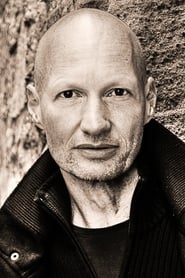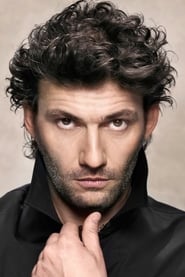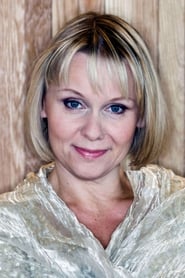

Richard Wagner: Tannhäuser(2004)
Witness the Zurich Opera's stunning production of Richard Wagner's masterpiece "Tannhauser," conducted by Franz Welser-Most and featuring Peter Sieffert (Tannhauser), Solveig Kringelborn (Elisabeth) and Roman Trekel (von Eschenbach). Initially produced in Dresden in 1845, "Tannhauser" instilled a sense of wonder in a few of Strauss's ardent friends and admirers, among them Robert Schumann and Franz Liszt. Opera buffs will love it.
Movie: Richard Wagner: Tannhäuser
Top 6 Billed Cast
Biterolf
Venus

Richard Wagner: Tannhäuser
HomePage
Overview
Witness the Zurich Opera's stunning production of Richard Wagner's masterpiece "Tannhauser," conducted by Franz Welser-Most and featuring Peter Sieffert (Tannhauser), Solveig Kringelborn (Elisabeth) and Roman Trekel (von Eschenbach). Initially produced in Dresden in 1845, "Tannhauser" instilled a sense of wonder in a few of Strauss's ardent friends and admirers, among them Robert Schumann and Franz Liszt. Opera buffs will love it.
Release Date
2004-11-16
Average
0
Rating:
0.0 startsTagline
Genres
Languages:
DeutschKeywords
Similar Movies
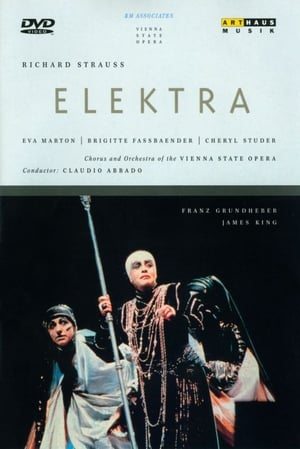 0.0
0.0Elektra(en)
Recorded at the Vienna State Opera house in 1989, this staging of Richard Strauss and Hugo von Hofmannsthal’s Elektra is one of the glories of live opera on film, deserving of eternal availability. The DVD picture has great clarity, despite the darkness of Hans Schavernoch’s set design. Other than the cliché of a huge statue head, toppled on its side, the set manages to be suitably representative of a decaying palace as well as an imposing, theatrical space, dominated by the mammoth body of the statue from which the head apparently dropped, draped with the ropes that seem to have enabled the decapitation. Sooner or later most of the characters cling to and twist around those ropes, an apt stage metaphor for the remorseless repercussions from the murder of Agammenon by his unfaithful wife Klytämnestra and her paramour, Aegisthus. Reinhard Heinrich’s costumes capture a distant era while sustaining a creepily modern look — part Goth, part homeless, part Spa-wear.
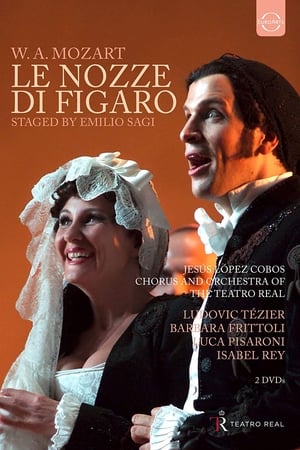 0.0
0.0Mozart: Le Nozze di Figaro(it)
Le Nozze di Figaro New Production Teatro Real in co-production with Bilbao’s ABAO and Las Palmas Teatro Pérez Galdós. From the opening notes of the overture to the final curtain, Emilio Sagi’s classic, triumphant production brings to life all the elegant wit and theatricality of Mozart’s comic masterpiece Le nozze di Figaro. Leading baritone Ludovic Tézier shines as the lustful Count Almaviva who attempts to obtain the favors of Figaro’s bride-to-be, Susanna (Isabel Rey), while Luca Pisaroni gives a feisty performance as Figaro. Conductor Jesús López Cobos masterfully captures the enchanting score. A witty yet profound tale of love, betrayal, and forgiveness.
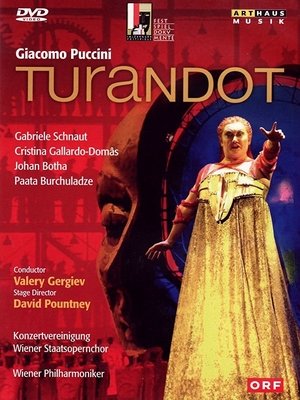 0.0
0.0Turandot(it)
Valery Gergiev leads the Vienna Philharmonic Orchestra in this production of Puccini's opera, recorded live at the Salzburger Festspiele in 2002. David Pountney's production features performances by Gabriele Schnaut, Paata Burchuladze, Johan Botha and Cristina Gallardo-Domas. This production uses Luciano Berio's 2001 completion of this unfinished opera.
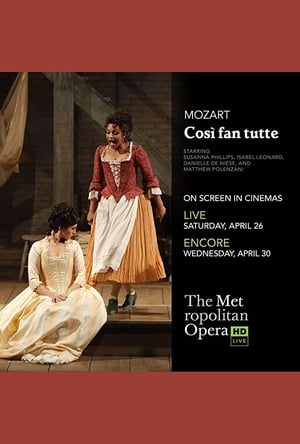 0.0
0.0The Metropolitan Opera: Così Fan Tutte(en)
Met Music director James Levine conducts a cast of youthful stars in Mozart’s sophisticated comedy about testing the ties of love. Susanna Phillips and Isabel Leonard are the sisters Fiordiligi and Dorabella, who are led to believe their fiancés have gone off to war. Matthew Polenzani and Rodion Pogossov are Ferrando and Guglielmo, the lovers who return in disguise to test their girls' fidelity. Danielle de Niese sings the scheming maid Despina and Maurizio Muraro is Don Alfonso, the philosopher and mastermind pulling the strings.
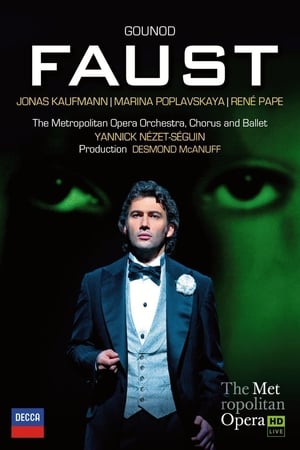 0.0
0.0Gounod: Faust(fr)
Tenor Jonas Kaufmann is riveting as the title character of Gounod’s popular opera, seen in this Live in HD presentation of Des McAnuff’s thrilling 2011 production that places the mythical and timeless story in an early 20th-century setting. René Pape as Méphistophélès is menacing and elegant in equal measure, and Marina Poplavskaya delivers a searingly intense portrayal of the innocent Marguerite. Russell Braun as her brother, Valentin, shines in his Act II aria. On the podium, Yannick Nézet-Séguin brings out all the lyricism and drama of Gounod’s score.
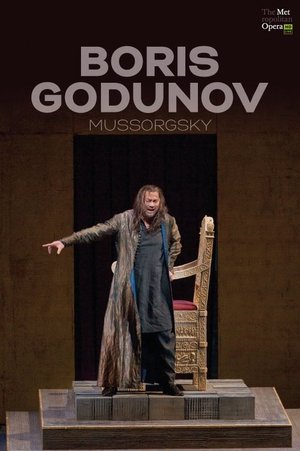 0.0
0.0The Metropolitan Opera: Boris Godunov(en)
Stephen Wadsworth’s production of Mussorgsky’s epic masterpiece brilliantly captures the suffering and ambition of the Russian people at a critical time in their nation’s history. René Pape is riveting as the Tsar of the title, giving a commanding and charismatic performance of one of the greatest bass roles in the repertoire—his Boris is dominating, tortured, flawed and utterly unforgettable. The extraordinary cast and the Met Orchestra and Chorus are led by Russian maestro Valery Gergiev, the foremost Mussorgsky interpreter of our time.
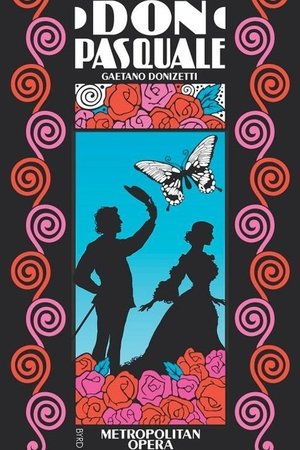 0.0
0.0Don Pasquale(it)
This John Dexter production, designed by Desmond Heeley, was a parting gift to the great American soprano Beverly Sills, who bid farewell to the Met as Norina, the smart young widow at the center of Donizetti’s comedy. The sensational Alfredo Kraus sings her beloved Ernesto. Håkan Hagegård, in his Met debut role and season, is Dr. Malatesta, the man who helps the young couple trick the crusty old bachelor of the title (Gabriel Bacquier at his comical best) into a fake marriage. This being a Donizetti comedy, it all turns out perfectly well at the end—and getting there is pure operatic fun.
Il Trovatore(it)
The Count Di Luna believes that his younger brother was murdered years before by a vengeful gypsy but still hopes that he may be alive. When he attempts to court the beautiful Leonora, he is enraged to discover that she has a lover – the troubadour, Manrico. Manrico and the Count duel, and afterwards Manrico reveals to Azucena, the woman he believes to be his mother, that when he had the opportunity to kill the Count he felt something holding him back.
 6.6
6.6That Girl from Paris(en)
Nikki Martin, a beautiful French opera star, stows away on an ocean liner in hopes of escaping her jealous fiancee. Once aboard, she joins an American swing band and falls in love with its leader, who, after hearing her sing, eventually comes to reciprocate her feelings.
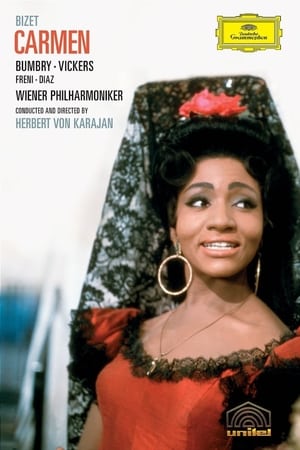 6.0
6.0Bizet Carmen(fr)
This spectacular opera film was taped in 1967 and is based on the 1966 Salzburg Festival production directed by Herbert von Karajan himself, who also conducts the fabulous Vienna Philharmonic Orchestra. The production features the three greatest exponents of their respective roles at the time: Grace Bumbry’s magnificently seductive-toned Carmen, Mirella Freni’s ineffably lovely, touching Micaëla and Jon Vickers’s thrillingly manic-depressive Don José. On its release the film was hailed by Die Presse, (Vienna) as a “unique artistic event”, while Le Monde felt that Karajan’s production brought “a whole new dimension” to the opera, “combined with a magisterial interpretation”. A classical and utterly dramatic approach to probably the world's most beloved opera – Karajan’s Carmen is as much a delicacy for opera fans as it is a perfect starter for newcomers.
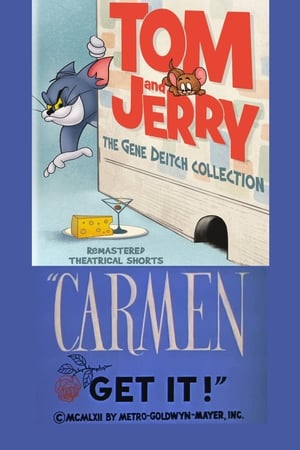 5.1
5.1Carmen Get It!(en)
Jerry runs into the Metropolitan Opera, trying to evade Tom.
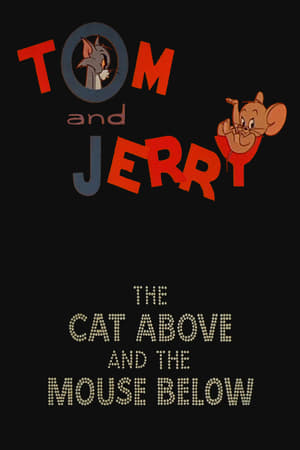 5.9
5.9The Cat Above and the Mouse Below(en)
Tom, famous baritone Signor Thomasino Catti-Cazzaza, enthralls a concert audience with his rendition of "Largo al factotum", from Rossini's "Il Barbiere di Siviglia", while Jerry strives for sleep under the stage.
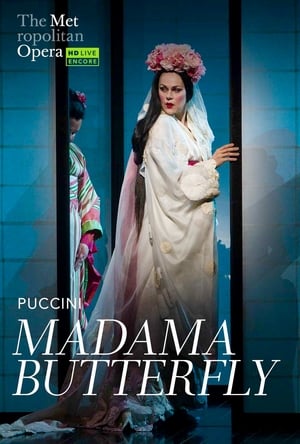 9.0
9.0The Metropolitan Opera - Puccini: Madama Butterfly(it)
Anthony Minghella’s beautiful, atmospheric production enhances Puccini’s drama of unfortunate, doomed love. Soprano Kristine Opolais brings all of her passionate commitment to her portrayal of Cio-Cio-San, the teenage geisha who gives up everything for Lt. Pinkerton. Roberto Alagna is the American naval officer who does not understand the depth of Cio-Cio-San’s love, and whose subsequent marriage to an American woman precipitates Butterfly’s suicide. Maria Zifchak is Suzuki, Cio-Cio-San’s faithful servant, and Dwayne Croft plays the American consul Sharpless, who tries to avert the tragedy. Karel Mark Chichon conducts.
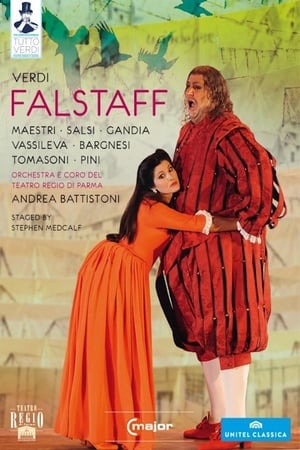 8.0
8.0Verdi: Falstaff (Teatro Regio di Parma)(it)
Part of Tutto Verdi series - Falstaff (2011) Parma. 'Falstaff' is an opera in three acts by the Italian composer Giuseppe Verdi (1813–1901). The libretto was adapted by Arrigo Boito from Shakespeare's 'The Merry Wives of Windsor' and scenes from 'Henry IV, parts 1 and 2'. The work premiered on 9 February 1893 at La Scala, Milan
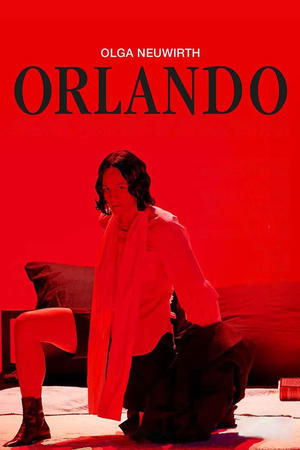 0.0
0.0Orlando(en)
Olga Neuwirth, for a long time one of the great composers of the present, succeeds with this opera in creating a captivating arc across many musical genres. It’s an exciting, socially critical production by Polly Graham who puts a fantastically singing and playing Kate Lindsey in the center of the action.
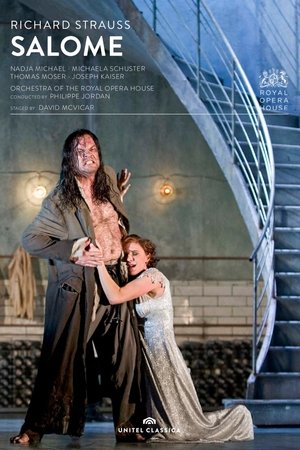 4.0
4.0Salomé(en)
David McVicar’s powerful Royal Opera House 2008 production of Strauss's opera – based on a play by Oscar Wilde – takes the controversial and disturbing film 120 Days of Sodom as its visual reference. The action is set in a debauched palace, which has suggestions of Nazi Germany. Strauss’s ravishing and voluptuous score adds to the sexual alchemy that is conjured by an international cast led by Nadja Michael in the title role.
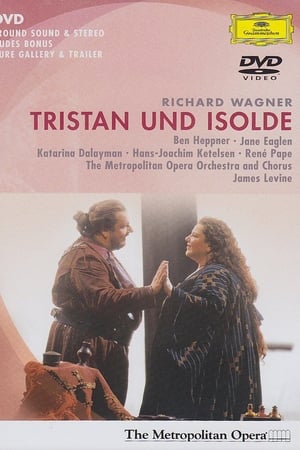 10.0
10.0Tristan und Isolde(de)
Inspired by Wagner’s own tortured affair with the wife of his patron, this searing masterwork is based on Arthurian legend and tells of an illicit romance between a Breton nobleman and the Irish princess betrothed to his uncle and king. The composer’s larger-than-life sensibilities are on full display throughout the score: Along with intoxicating orchestral music that surges in tandem with the couple’s burgeoning passion and a chord left symbolically unresolved until the last moments of the opera, the opera also features one of the repertory’s most soaring and ecstatic final climaxes, as Isolde surrenders to a love so powerful that she transcends life itself.
 0.0
0.0L'Italiana in Algeri(it)
"This is Vienna State Opera live at home". April 2015. 'L'italiana in Algeri' (English: 'The Italian Girl in Algiers') is an operatic dramma giocoso in two acts by Gioachino Rossini to an Italian libretto by Angelo Anelli, based on his earlier text set by Luigi Mosca. It premiered at the Teatro San Benedetto in Venice on 22 May 1813. The music is characteristic of Rossini's style, remarkable for its fusion of sustained, manic energy with elegant, pristine melodies.
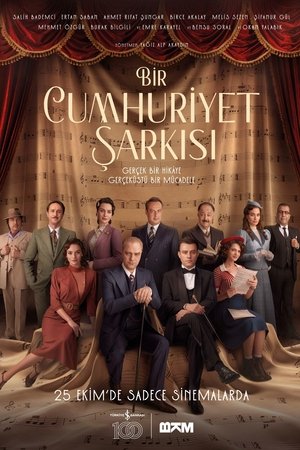 8.0
8.0A Republic Song(tr)
During the Turkish artistic revolution of the 1930s, a group of pioneers staged Özsoy Opera, the first opera in the history of Turkish Republic.
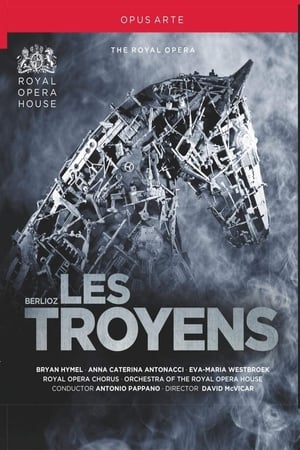 8.0
8.0Les Troyens(fr)
After the destruction of Troy, the Trojan warrior Énée sets out on a journey to found a new dynasty. He meets Didon, Queen of Carthage, and falls in love. But will Énée's love for Didon prove stronger than his sense of duty? LES TROYENS ('The Trojans') is a tour de force of music that ranges from fiery military marches to intense choruses, passionate soliloquies – such as those of the prophetess Cassandre – and the lyrical love duets of Didon and Énée. It is Hector Berlioz's largest work and he wrote the libretto himself, drawing upon his intimate knowledge of Virgil's Aeneid. To the composer's disappointment, LES TROYENS was only performed once in full during his lifetime and was often presented in shortened form during the 20th century. The Royal Opera's production provides a rare chance to see this epic work in its entirety. David McVicar's staging is on an enormous scale, assembling one of the largest casts ever seen at Covent Garden.

